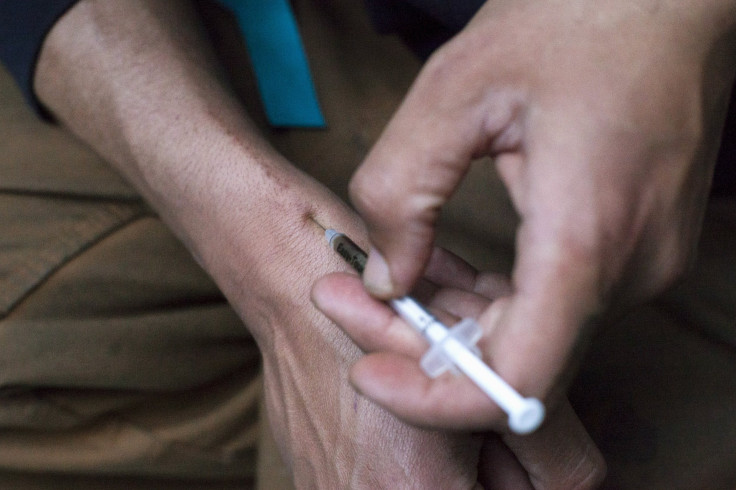What Are Supervised Injection Sites? Haven For Illegal Drugs Operating In US

In an unnamed city in the U.S., an organization offers safe but an unsanctioned haven for users to inject themselves with heroin and other drugs, a paper published Tuesday stated.
The secret site, illegal under Federal law, has been in operation for three years, and its trained staff supervise the drug users, provide them with clean needles and prevent overdoses.
The supervised injection site, as it is commonly called, serves the dual purpose of “increasing the safety of people who inject drugs and reducing the public nuisance of having people injecting drugs in public spaces,” the paper published in the American Journal of Preventive Medicine said.
TRENDING: Video Shows Malia Obama Being Carted Out Of Lollapalooza In Chicago
Authors of the paper who studied the site for the first two years of its operation stated that a nonprofit organization is running the place, and those who frequent it are known to the staff and go there by invitation only.
Most of the clients are white (80 percent), male (91.3 percent) and homeless (80.5 percent), the paper said.
The survey conducted by the authors revealed that 2,574 injections were used by over 100 participants (the exact number was not known as the survey was anonymous), and heroin was the most commonly injected drug.
Other drugs used by the visitors included methamphetamine, prescription opioids or cocaine. There were only two cases of overdose and both were reversed by the staff by using Naloxone— a medication used to block the effects of opioids.
Ten countries in the world including Australia, Canada, Denmark, and France have legally sanctioned such injection sites; there are 98 such facilities in 66 cities worldwide, according to the study.
In the U.S., however, the operation of these facilities has been widely debated, with many in the medical community recommending them given the increase in drug abuse deaths.
Alex Kral, an epidemiologist for RTI International and co-author of the paper, said, "The whole country knows this is a crisis. We need some new solutions. We need innovation at this point. This is not innovation out of thin air. This is innovation that's been proven."
According to the Washington Post, cities like California, New York City, Boston, and Ithaca are exploring the idea. While the board of health of King County —which includes Seattle —had approved the recommendation to open injection sites, citizens opposing the move signed a petition to put it to vote before they were opened in November.
READ: Suspected Cartel Gunmen Open Fire At Tourists In Mexico Beach
Even as President Donald Trump advocated a stronger law enforcement response to combat the opioid crisis, the National Center for Health Statistics stated the number of deaths due to drug overdose in the U.S. might increase to 60,000 when the data for 2016 is released. This will be a sharp increase from 52,000 deaths in 2015.
Taeko Frost, western regional director of the Harm Reduction Coalition and who has studied supervised injection sites, told Washington Post: “It's really hard to create any space or time for anyone to focus on anything else when they're worried about not getting arrested or dying alone. We really applaud the work they’re doing.”
She added about the unsanctioned injection sites: “It's extremely courageous to operate a lifesaving service like this.”
© Copyright IBTimes 2024. All rights reserved.











